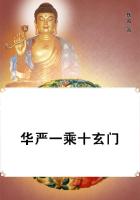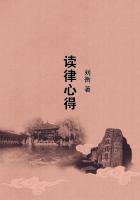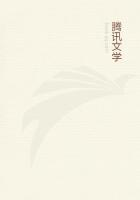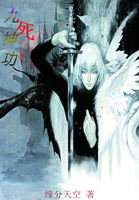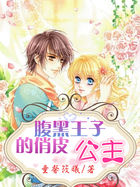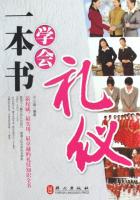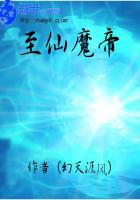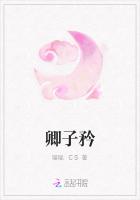In that ill-written, ragged book, THE PIRATE, the figure of Cleveland - cast up by the sea on the resounding foreland of Dunrossness - moving, with the blood on his hands and the Spanish words on his tongue, among the simple islanders - singing a serenade under the window of his Shetland mistress - is conceived in the very highest manner of romantic invention. The words of his song, "Through groves of palm," sung in such a scene and by such a lover, clench, as in a nutshell, the emphatic contrast upon which the tale is built. IN GUY MANNERING, again, every incident is delightful to the imagination; and the scene when Harry Bertram lands at Ellangowan is a model instance of romantic method.
"I remember the tune well," he says, "though I cannot guess what should at present so strongly recall it to my memory." He took his flageolet from his pocket and played a simple melody. Apparently the tune awoke the corresponding associations of a damsel. She immediately took up the song -" 'Are these the links of Forth, she said;Or are they the crooks of Dee, Or the bonny woods of Warroch Head That I so fain would see?'
" 'By heaven!' said Bertram, 'it is the very ballad.'"On this quotation two remarks fall to be made. First, as an instance of modern feeling for romance, this famous touch of the flageolet and the old song is selected by Miss Braddon for omission. Miss Braddon's idea of a story, like Mrs. Todgers's idea of a wooden leg, were something strange to have expounded. As a matter of personal experience, Meg's appearance to old Mr. Bertram on the road, the ruins of Derncleugh, the scene of the flageolet, and the Dominie's recognition of Harry, are the four strong notes that continue to ring in the mind after the book is laid aside.
The second point is still more curious. The, reader will observe a mark of excision in the passage as quoted by me. Well, here is how it runs in the original: "a damsel, who, close behind a fine spring about half-way down the descent, and which had once supplied the castle with water, was engaged in bleaching linen." A man who gave in such copy would be discharged from the staff of a daily paper.
Scott has forgotten to prepare the reader for the presence of the "damsel"; he has forgotten to mention the spring and its relation to the ruin; and now, face to face with his omission, instead of trying back and starting fair, crams all this matter, tail foremost, into a single shambling sentence. It is not merely bad English, or bad style; it is abominably bad narrative besides.
Certainly the contrast is remarkable; and it is one that throws a strong light upon the subject of this paper. For here we have a man of the finest creative instinct touching with perfect certainty and charm the romantic junctures of his story; and we find him utterly careless, almost, it would seem, incapable, in the technical matter of style, and not only frequently weak, but frequently wrong in points of drama. In character parts, indeed, and particularly in the Scotch, he was delicate, strong and truthful; but the trite, obliterated features of too many of his heroes have already wearied two generations of readers. At times his characters will speak with something far beyond propriety with a true heroic note; but on the next page they will he wading wearily forward with an ungrammatical and undramatic rigmarole of words. The man who could conceive and write the character of Elspeth of the Craigburnfoot, as Scott has conceived and written it, had not only splendid romantic, but splendid tragic gifts. How comes it, then, that he could so often fob us off with languid, inarticulate twaddle?
It seems to me that the explanation is to be found in the very quality of his surprising merits. As his books are play to the reader, so were they play to him. He conjured up the romantic with delight, but he had hardly patience to describe it. He was a great day-dreamer, a seer of fit and beautiful and humorous visions, but hardly a great artist; hardly, in the manful sense, an artist at all. He pleased himself, and so he pleases us. Of the pleasures of his art he tasted fully; but of its toils and vigils and distresses never man knew less. A great romantic - an idle child.

